
The face of comedy, shaped by the changing societal standards and tastes of the period, has adapted consistently throughout time. Comedy on TV today is a far cry from the slapstick, physicality-focused humor of Charlie Chaplin or The Three Stooges that our grandparents once enjoyed. Some relics from the heyday of laugh-track sitcoms that followed still remain, but the 21st century has welcomed a different type of humor in the TV shows it’s graced us with. Just a few decades ago, the main method of delivery for comedic television was the mom-and-pop-on-a-sound-stage sitcom. As we progressed into the 21st century, the boundaries were stretched from family-focused shows with veiled innuendo and crass jokes dodging censorship to a more modernist depiction of everyday life, intended for more “mature audiences.”
— Sofia Lynch, Daily Arts Writer
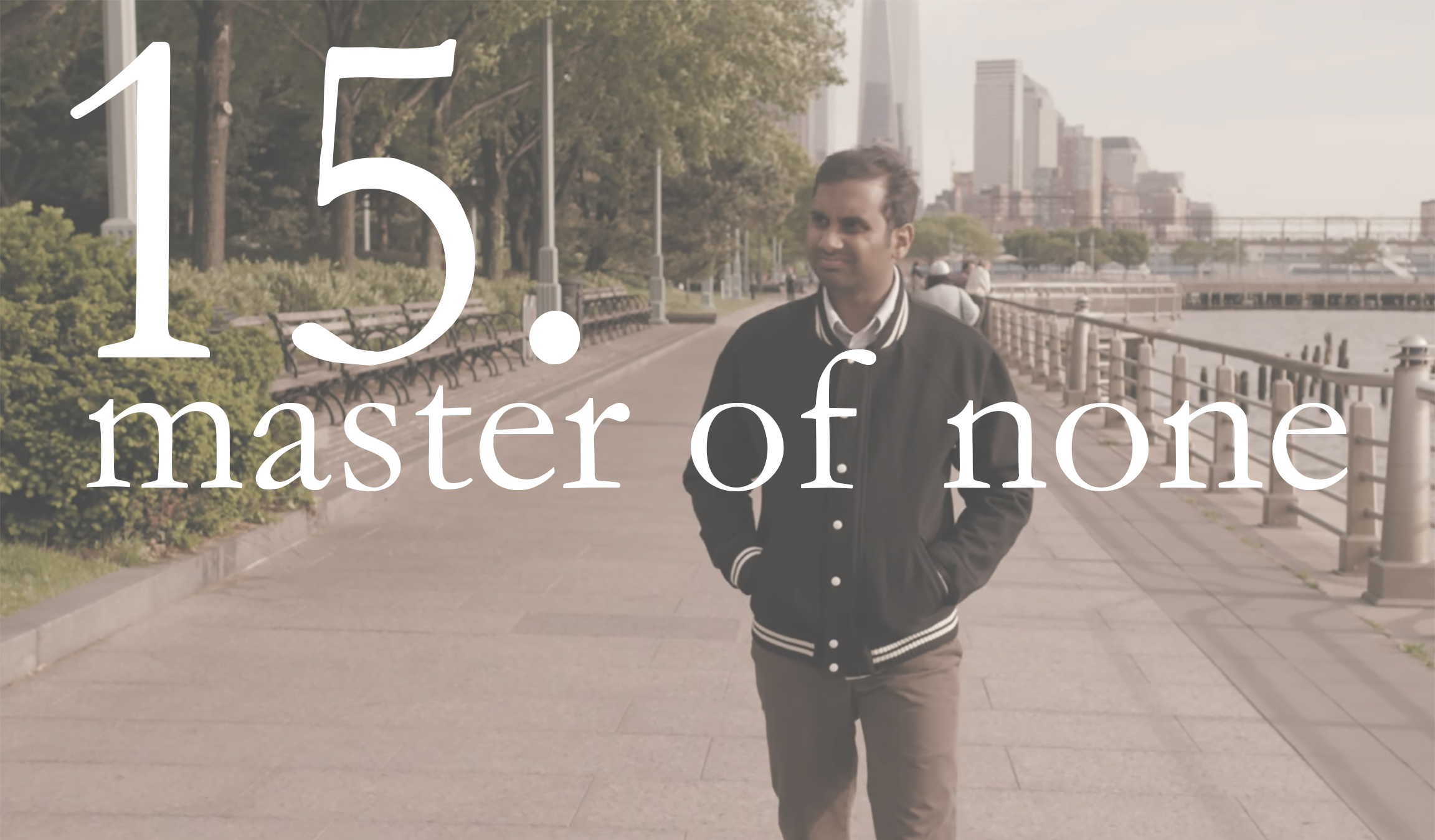
Aziz Ansari is, for this generation of ours, an extremely important talent. You can debate his merits — whether he’s funny enough, if every standup special or bit of his is just an extension of his “Modern Romance” book, etc. — but you can’t deny that he’s particularly influential. In “Master of None,” he’s taken the practice of millennial navel-gazing and elevated it to a Woody Allen-esque art-form. It’s gorgeously filmed and deceptively perceptive, expansive in scope while admittedly specific in setting (a murderer’s row of nouveau riche millennial hotspots in New York City). And while it may only appeal to a certain generation (namely: ours), “Master of None” is undeniably captivating. It simply works.
— Nabeel Chollampat
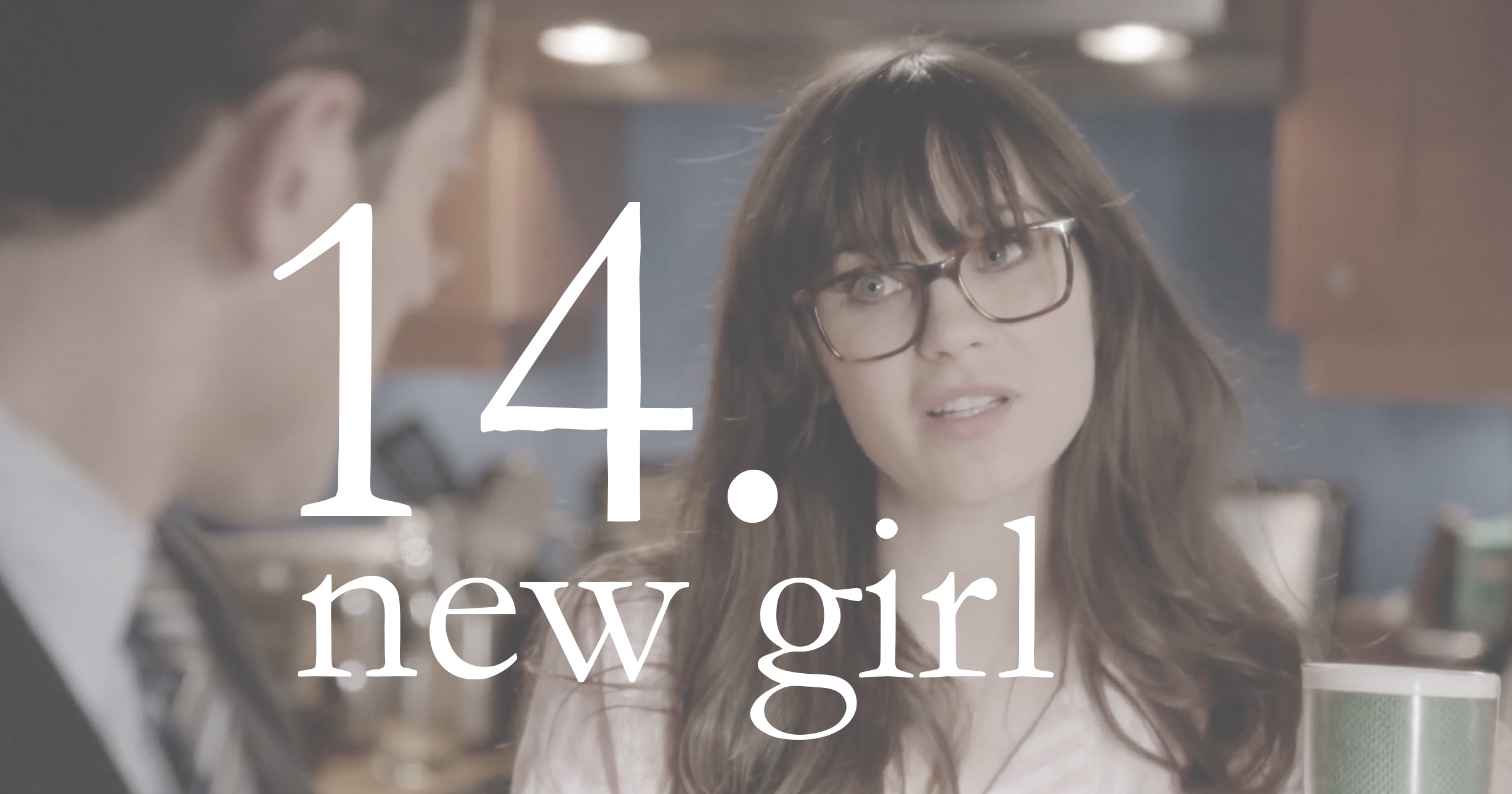
A gift bestowed upon us by the sitcom gods, “New Girl” is truly the modern-day reincarnation of “Friends.” Priceless flashbacks to a formerly fat character, an eclectic meeting spot where the gang attempts (and always fails) to sort out their life problems, and iconic Thanksgiving episodes filled with house fires and copious amounts of screaming—yeah, the series pretty much satisfies everything I could want out of a network comedy. The plot is mindless, but in the best way—the quirky Jess (Zoey Deschanel) becomes the new roommate to three peculiar single guys, and together the rag-tag group attempts to mature. “New Girl” is the ultimate mood-booster, effectual as it actually makes me laugh out loud at the sarcastic one-liners and downright odd situations that the friends find themselves in. The real treasure of the series is roommate, Schmidt, whom I have developed a pretty intense spiritual connection to, and admittedly I sometimes watch the show just to watch what antics force him to add money into his “douche-bag jar” (and to hear him mispronounce “chutney”). If you’re looking for a show with witty writing and hilariously imperfect characters to distract you from the real world, then this is it.
— Morgan Rubino
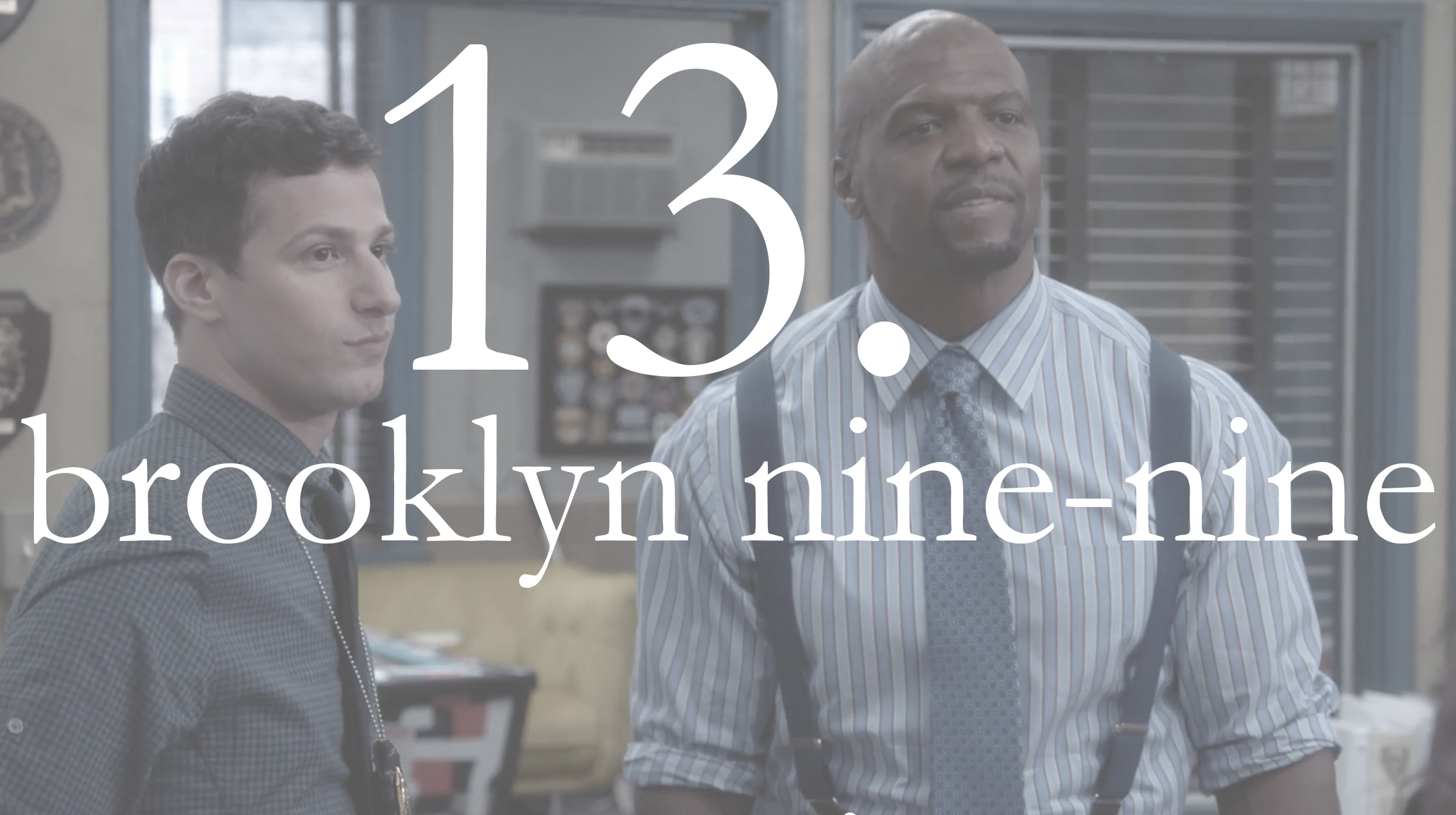
In the world of a thousand police-centric TV shows, Michael Schur’s “Brooklyn Nine-Nine” brings light to a traditionally dark setting. Like Schur’s other home run, “Parks and Recreation,” the comedy of “Brooklyn Nine-Nine” is built on the mis-matching personalities and unlikely relationships of the lovable band of misfit cops. Much of the show takes place within the walls of the police department, focusing more on the shenanigans of the characters between cases than actual police work.
“Brooklyn Nine-Nine” showcases a wide variety of personalities, bringing about comedic balance through the innate humor of pairing polar opposites together. The main detective, Jake Peralta (Andy Samberg, “Saturday Night Live”) delivers the same dorky style of humor the actor was known for in “The Lonely Island,” while his captain, Raymond Holt (Andre Braugher, “Homicide: Life on the Street”) acts as a foil to his antics, providing arguably one of the most iconic deadpan characters of the 21st century. Much like its Schur predecessors, “Brooklyn Nine-Nine” shines by welcoming in its viewers into the inside jokes and inner circle of its characters, yet again livening up the mundane workplace environment to serve up stellar, relatable comedy.
— Sofia Lynch
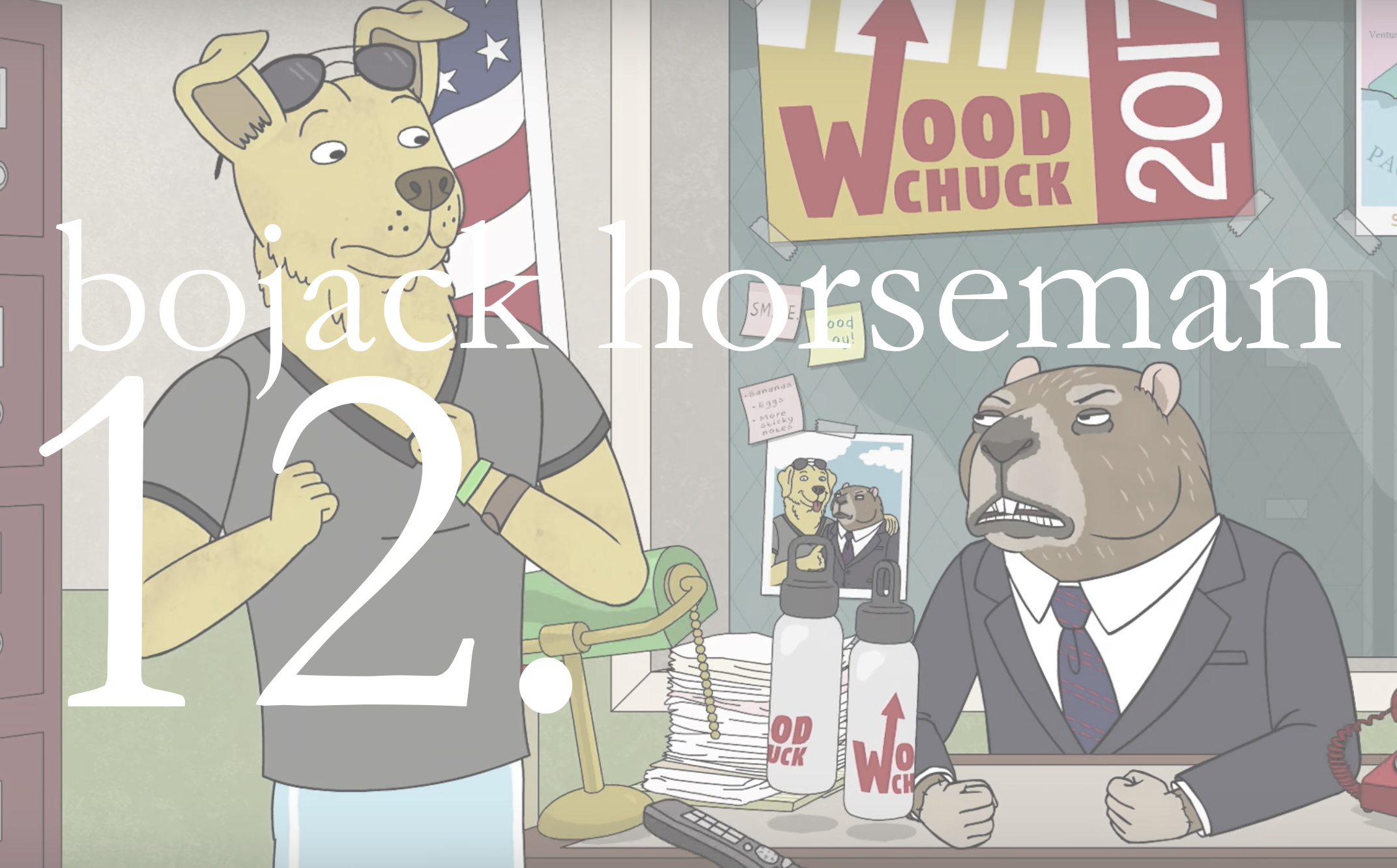
In a sense, it’s a bit ironic to call it “BoJack Horseman” a comedy. Though it is incredibly funny, the Netflix series is also deeply and unapologetically melancholy. The story centers on the titular character (Will Arnett, “Arrested Development”), a self-loathing, narcissistic washed up ‘90s sitcom star who attempts to reclaim his lost glory days while confronting the traumas of his past. By taking BoJack and other animal-human hybrid characters seriously, “BoJack Horseman” works as a biting commentary on Hollywood artifice, a meticulous study on fragile masculinity and an honest portrait on mental illness. Which is crazy, considering the show’s main character is a talking horse with the body of a man. But don’t let that seemingly silly fact fool you: “BoJack Horseman” flips the tried-and-true man-child formula completely on its head. With each season (the most recent being its best), BoJack grapples with and sometimes succeeds in mending his broken relationships with his slacker roommate Todd (Aaron Paul, “Breaking Bad”), his frenemy Mr. Peanutbutter (Paul F. Tompkins, “Curb Your Enthusiasm”), his ghostwriter Diane (Alison Brie, “GLOW”) and his abusive mother (Wendie Malick, “Hot in Cleveland”). Along with its emotionally resonant themes, “BoJack Horseman” is also an aesthetic tour de force, filled with gorgeous animation, hysterical blink-and-you’ll-miss-it visual gags and a phenomenal voice cast. But perhaps “BoJack Horseman”’s greatest quality is how, like “The Simpsons” and “Rick & Morty,” it tells compelling sad stories without sacrificing humor and heart.
— Sam Rosenberg

“Six seasons and a movie!” was the rallying call for the group of dedicated and ardent fans of the NBC sitcom “Community”, one which featured production politics almost as dysfunctional as the group of characters the show centered on. Jeff Winger (Joel McHale, “Milo Murphy’s Law”), one of the main leads, is an ex-lawyer who after getting fired from his law firm for lying about having a law degree, decides to go to Glendale Community College to start studying for an actual degree. He ends up in a study group featuring a memorable cast of characters including the socially inept pop-culture aficionado Abed (Danny Pudi, Smurfs: The Lost Village), former football star Troy (Donald Glover, Spider-Man: Homecoming), Chevy Chase playing a mirror of his real personality, and the over-the-top/slightly insane Spanish teacher turned student Ben Chang (Ken Jeong). Despite low TV ratings and ongoing drama between showrunner Dan Harmon and pretty much everyone, seasons one through three of the show provide some of the most meta, clever, silly, and simultaneously touching comedy due to incredible chemistry between the members of the show’s ensemble cast.
— Sayan Ghosh
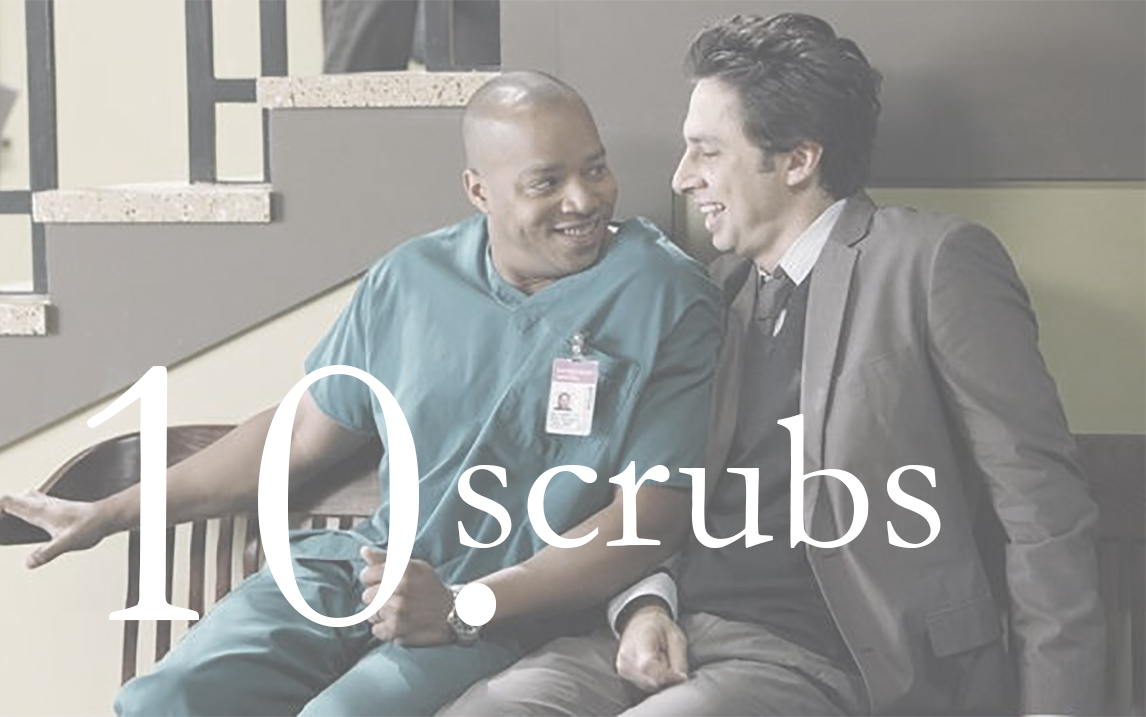
We don’t always think of comedy as a genre that helps us understand and cope with life’s misfortunes. And yet, it is exactly that. It feels almost necessary. A comedy without drama or a drama without comedy equally feel empty. “Scrubs” is a show that somehow masters that balance between humor and pathos, illuminating both the difficult and sometimes hilarious facets of working in a hospital. Along with its immensely talented ensemble cast, “Scrubs” immediately established itself within the crowd of early 2000s TV comedies for its fast-paced dialogue, surreal fantasy sequences, memorable characters, iconic opening credits, and the infectious bromance between the goofy protagonist J.D. (Zach Braff, “Garden State”) and Turk (Donald Faison, “Wish I Was Here”). During its nine season run, it was also considered to be the most medically accurate television show (eat your heart out, “Grey’s Anatomy”). “Scrubs,” of course, focuses much more on just the everyday lives of doctors. As the characters mature over time at Sacred Heart Hospital, their arcs only grow more richly nuanced and dynamic when they encounter issues of familial obligations, romantic relationships, mental health and patient deaths. Despite a tricky switch to another network and an unnecessary, unfunny final season, “Scrubs” revealed some heartbreaking and heartwarming truths about life through the people who try to save it.
— Sam Rosenberg
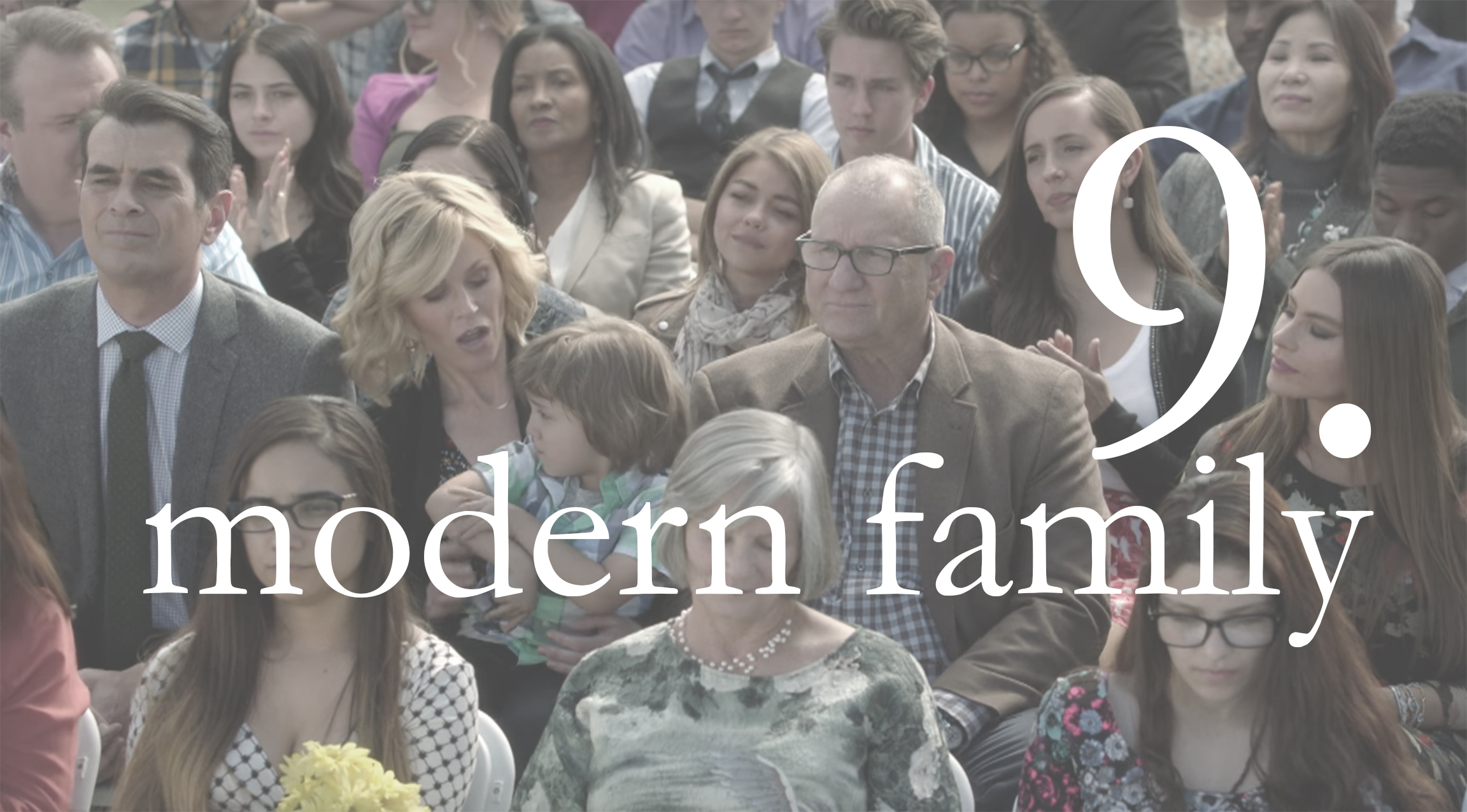
Another mockumentary, another success. Since its premiere in 2009, ABC’s “Modern Family” continues to challenge what a “typical” American family looks like in the 21st century. As it turns out, the new normal is wacky and hilarious, a melting pot of identities. Perhaps that is why “Modern Family” has stood the test of time; there’s something for everyone to latch onto when exploiting family drama. Now in its ninth season, the series has become the kind of show you don’t even realize you’re still watching. And yet, there you are on a Wednesday night, cradling your laptop at one in the morning and clicking on the next episode. The series has racked up 22 Emmy wins (if you care about that sort of thing) and continues to be a prominent staple in television comedy.
— Danielle Yacobson
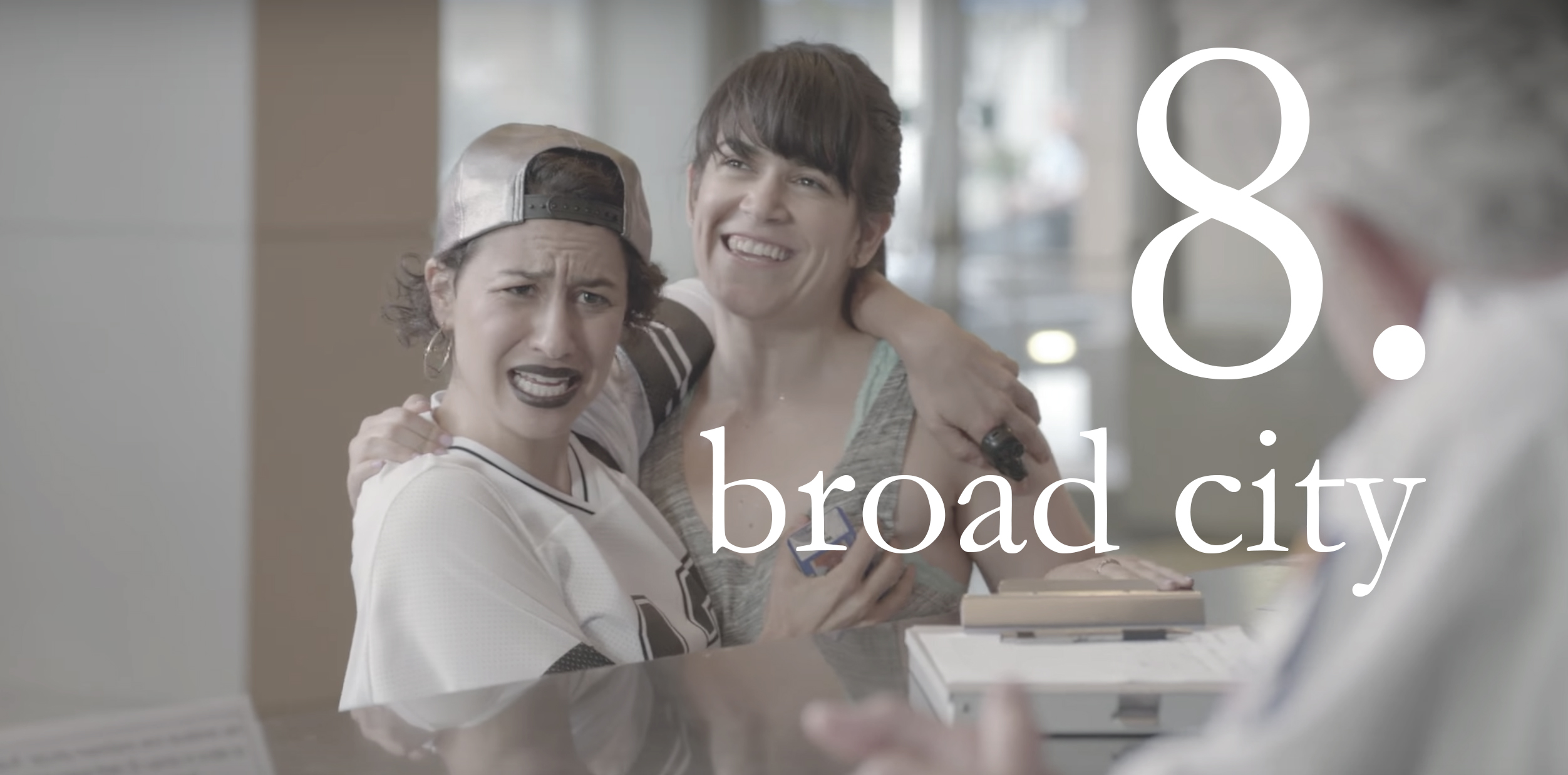
“Broad City” keeps it real — and that’s why I love it. The Comedy Central series, executively produced by Amy Poehler, chronicles the perfectly imperfect lives of struggling millennials and best friends, Abbi (Abbi Jacobson) and Ilana (Ilana Glazer), who unveil the ugly yet necessary truths of adulting. More importantly, Abbi and Ilana are our kind of people. Whether it be reluctantly accepting a job cleaning up vomit after spin class, tripping on painkillers post-wisdom teeth surgery or attempting to stomach a seafood dinner with a shellfish allergy, the leading ladies of “Broad City” remain authentic and genuinely supportive of one another. The show wins in the way that it’s humor hides nothing—sexuality is openly discussed, weed is openly celebrated and female empowerment is openly encouraged (especially since the show is created by and stars two women who converse on topics other than men). Currently on its fourth season, “Broad City” continues to excel and create honest laughter through its unpredictability and spotlight on just having a good ole’ time no matter what. At the end of the day, we all have to endure life’s slap-in-the-face “is this seriously happening?” moments, so why not laugh at our own challenges alongside Abbi and Ilana?
— Morgan Rubino
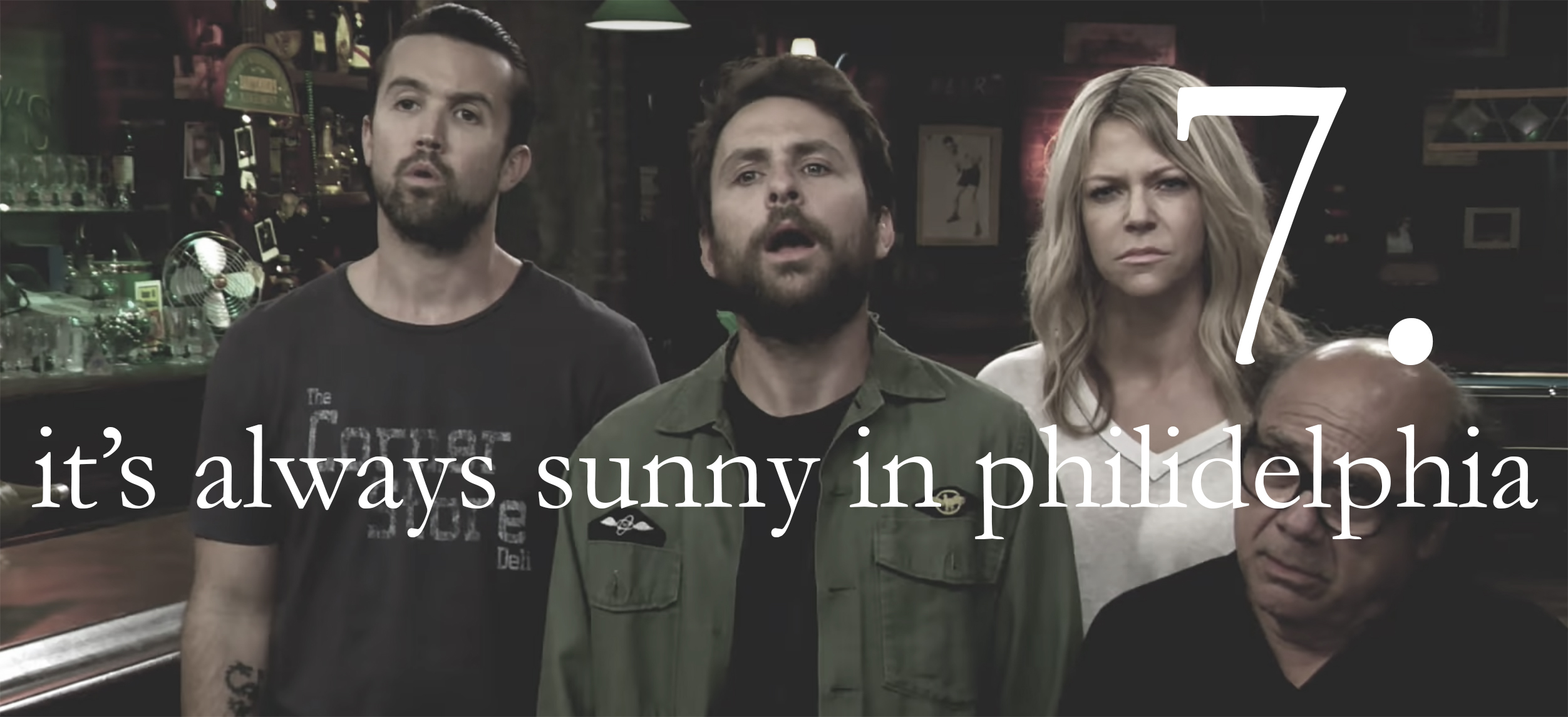
Sweet Dee, Mac, Charlie, Dennis and Frank do nothing but sit around their Irish bar, drink, cause trouble and manage to launch themselves in absurd, controversial, unethical, crude and demented situations. “It’s Always Sunny in Philadelphia” premiered in 2005 on The FX and is currently on its 12th season. The American sitcom follows the everyday lives of the Gang and shows their twisted judgement but never failing to make the audience laugh.
Each character has their own set of corrupt ‘values,’ without a single member proving to be the moral compass. They are all equally dishonest and feed off of one another’s energy. Dee (Kaitlin Olson, “The Mick”) and Dennis (Glenn Howerton, When Pigs Fly) are twins that hang out their short, plum legal father, Frank (Danny Devito, The Flying Carsons). Mac (Rob McElhenney, Boldly Going Nowhere) and Charlie (Charlie Day, I Love You, Daddy) are their friends and accompany them in their selfish, narcissistic activities. The cast works together seamlessly, as the actors are noticeably comfortable around each other.
The show is constantly pushing the societal limits, pulling out raunchy, inappropriate predicaments the characters willingly put themselves in. Sleeping with old, toothless men for a secret beer recipe, setting a house on fire for news publicity, getting addicted to crack cocaine to get Welfare and pretending to have AIDS to get to the front of lines are just a few examples of their moraless decisions. To add, they are underachieving with inflated egos and are shamelessly willing to step on each other to get ahead. They clown around and make light of serious storylines. The crossing of moral boundaries using broad humor and wit to turn these awkward moments hilarious.
— Olivia Asimakis
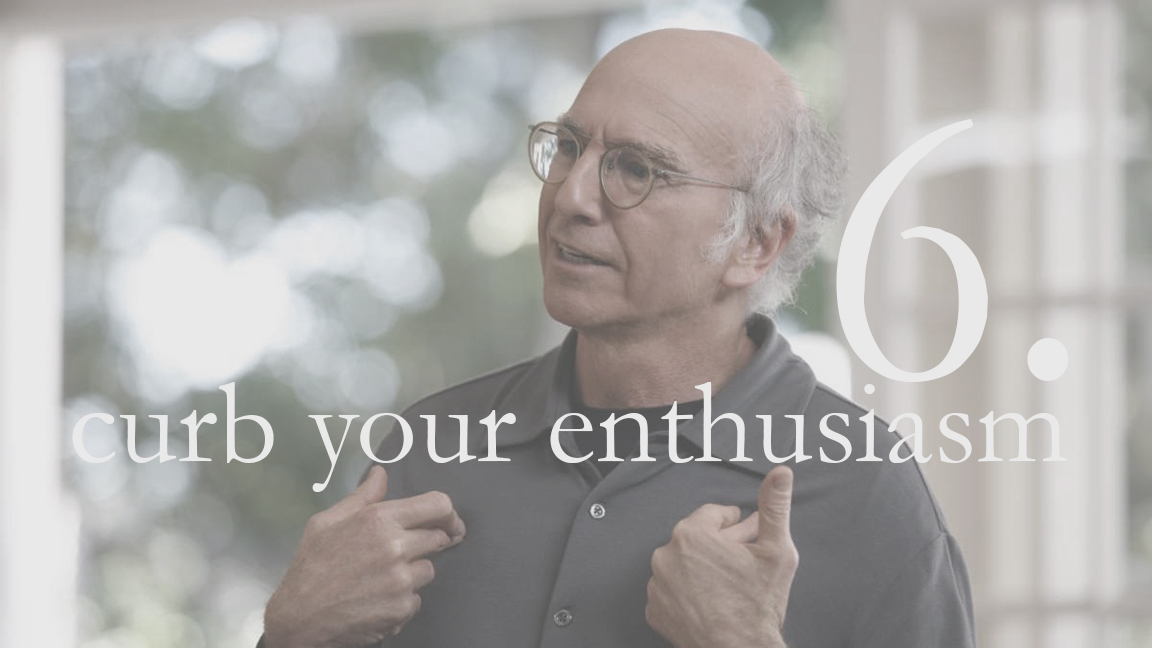
At this point, you know what you’re getting from Larry David. And if you don’t like that, then you probably don’t like “Curb Your Enthusiasm.” But I have to ask: why don’t you like that? As he did with “Seinfeld,” David uses his long-running, passion project of a show to explore the small things in life that he absolutely hates: the lady that takes too long to pick a flavor at the ice cream store, your friend at lunch not showing you how much he’s tipping, the infamous “chat-and-cut,” etc. It’s all very Seinfeld-ian, of course, but there’s no one better at this than the man himself. “Curb” is a showcase of peak American observational humor, the wellspring of cringe comedy from which the likes of “Scott’s Tots” (“The Office”) arose. Larry the character is everybody’s favorite curmudgeon; he’s cranky, impossible and very rarely the hero. But what makes us keep watching, years after its Y2K debut, is that we know, in our hearts, he’s often right about the stupid minutiae that piss us off to no end. We just don’t want to admit it.
— Nabeel Chollampat
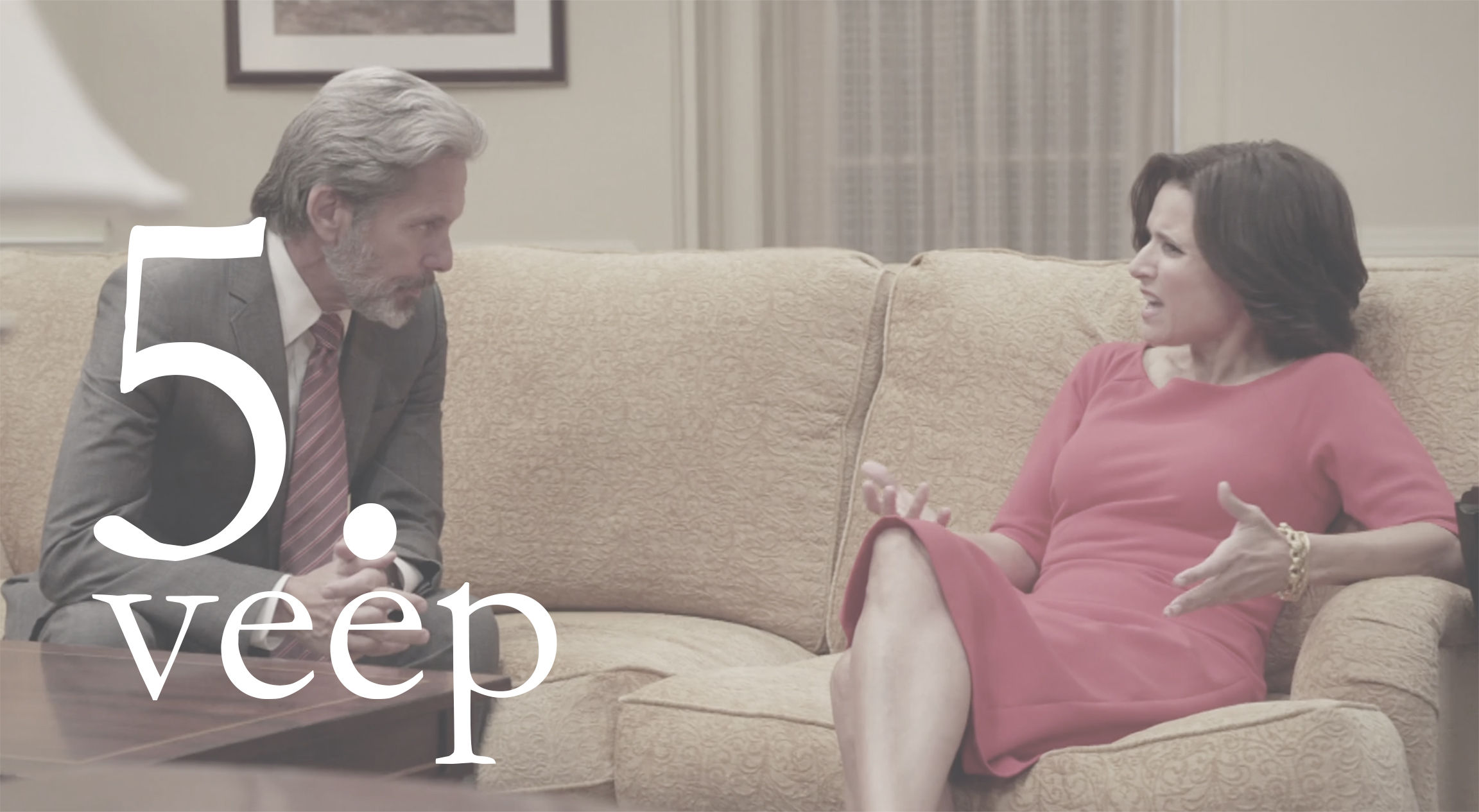
Some things just aren’t worth the hype. Country music, frat parties, marriage, sports — sure they’re pretty cool, but they’re nothing to write home about. “Veep,” on the other hand, is worthy of monuments erected in its honor and a national day of recognition for the time of its premiere. Yeah, it’s that good.
The HBO comedy stars Julia Louis-Dreyfus as the bullheaded and opportunistic Selina Meyers, whose experience with Washington politics can be equated to being repeatedly curb-stomped and then tossed into a life-sized blender. Still, you never really feel bad for the fictional female politician, as her and her team are diabolical, self-serving and void of any normal human emotion. They’re also absolutely hilarious.
Whether it’s the obsessive relationship between Selina and her assistant or the barrage of insults hurled at an absurdly tall West Wing worker (“What are you laughing at, Jolly Green Jizzface?”), every nook and cranny of a “Veep” episode is filled with flawless, vulgar and quick-witted humor. And with an average of four jokes per minute, “Veep” is quite literally the funniest show on television.
— Samantha Della Ferra
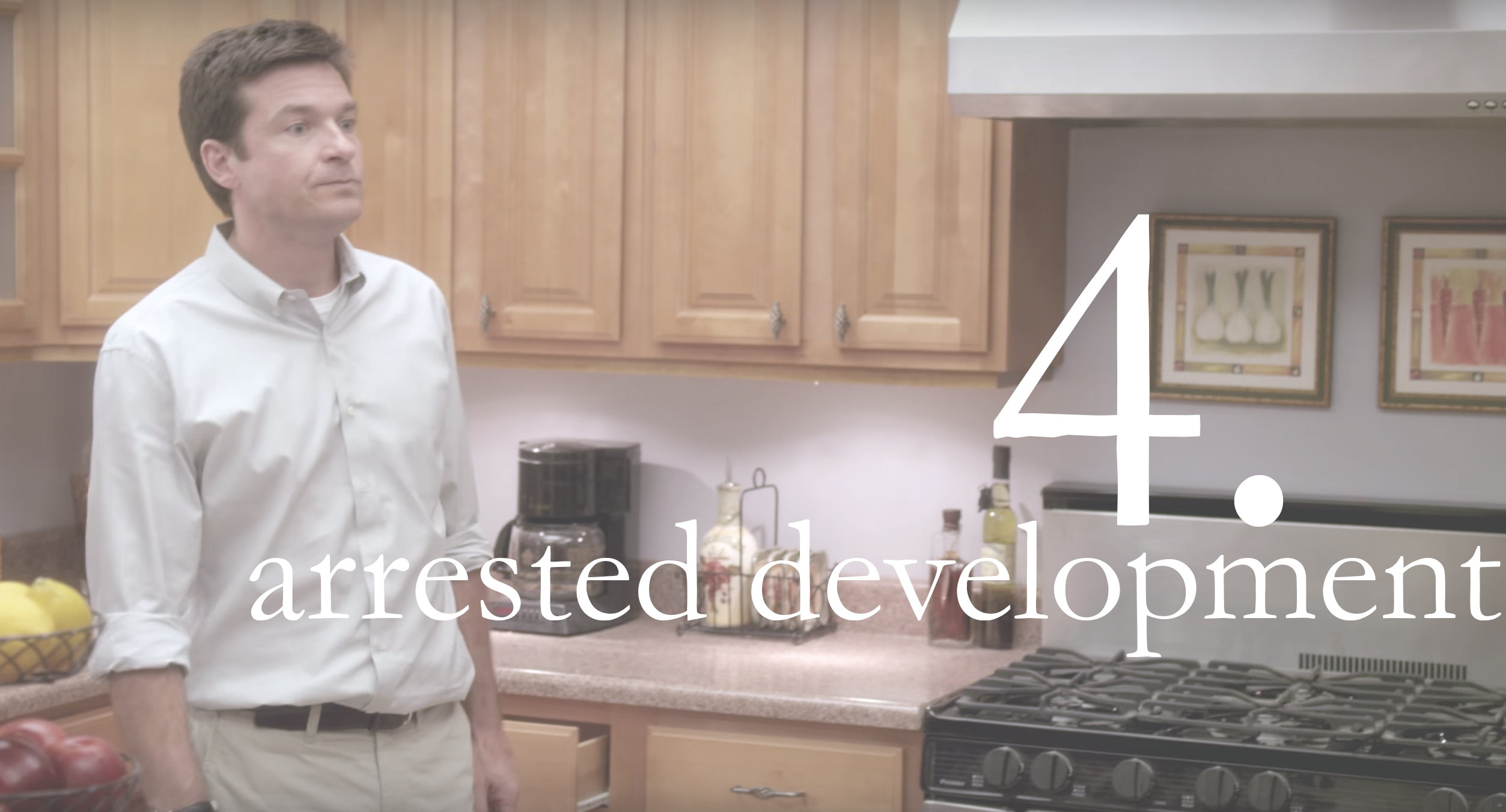
Jason Bateman. Jeffrey Tambor. Michael Cera. Tony Hale. Will Arnett. Portia de Rossi. David Cross. With a cast this talented, it’d be natural to expect “Arrested Development” to be good, but that’s an understatement. Although it’s been on-and-off the air since 2003, “Arrested Development” contains some of the sharpest comedic wit ever to grace television screens. “Arrested Development” embraces its neurotic elements, and the result is a series that excels without any boundaries or creative restrictions. The show’s plethora of stars jell perfectly together to not only produce incredibly wacky and memorable scenes, but also avoid having one of these comedic titans dominate the spotlight, which is a valid concern for such an overqualified cast. Rather than being carried by one of its multiple Emmy winners, “Arrested Development” is well-balanced, with each character shining in their own unique comedic niche. Overall, “Arrested Development” is funny, weird, and heartwarming all at the same time, and it’s pure comedic genius.
— Connor Grady
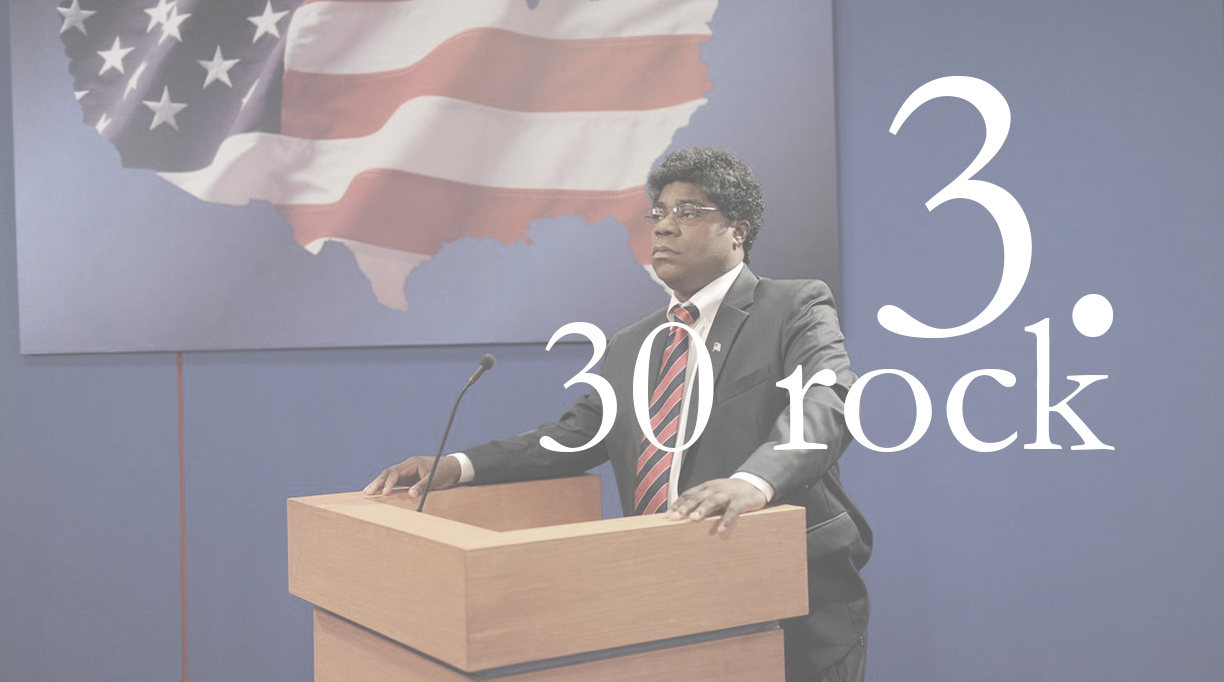
“30 Rock” is a show best defined by its characters. From the frenetic showrunner Liz Lemon to her boss-turned-mentor Jack Donaghy, the series pulled no punches when it took a shot at the uncomfortable relationship between the creative and business ends of television. Behind sketch-comedy series “TGS,” an analogue to “Saturday Night Live,” viewers got to see the ugly inner-workings of producing television. Due to the accuracy and real-world events the series parodied, “30 Rock” had a brand of comedy that was surreal and fast-paced. Its elaborate jump-cuts and good wordplay kept viewers on their feet and engaged.
“30 Rock” ranks third on our list for its ability to balance deep, personal issues and the insanity of everyday life. From Jenna to Tracy, from Jack to Liz, each character is trying their best to prove that they’re not worthless. That, in combination with the levity of the show’s format, kept us watching for seven seasons.
— Jack Brandon
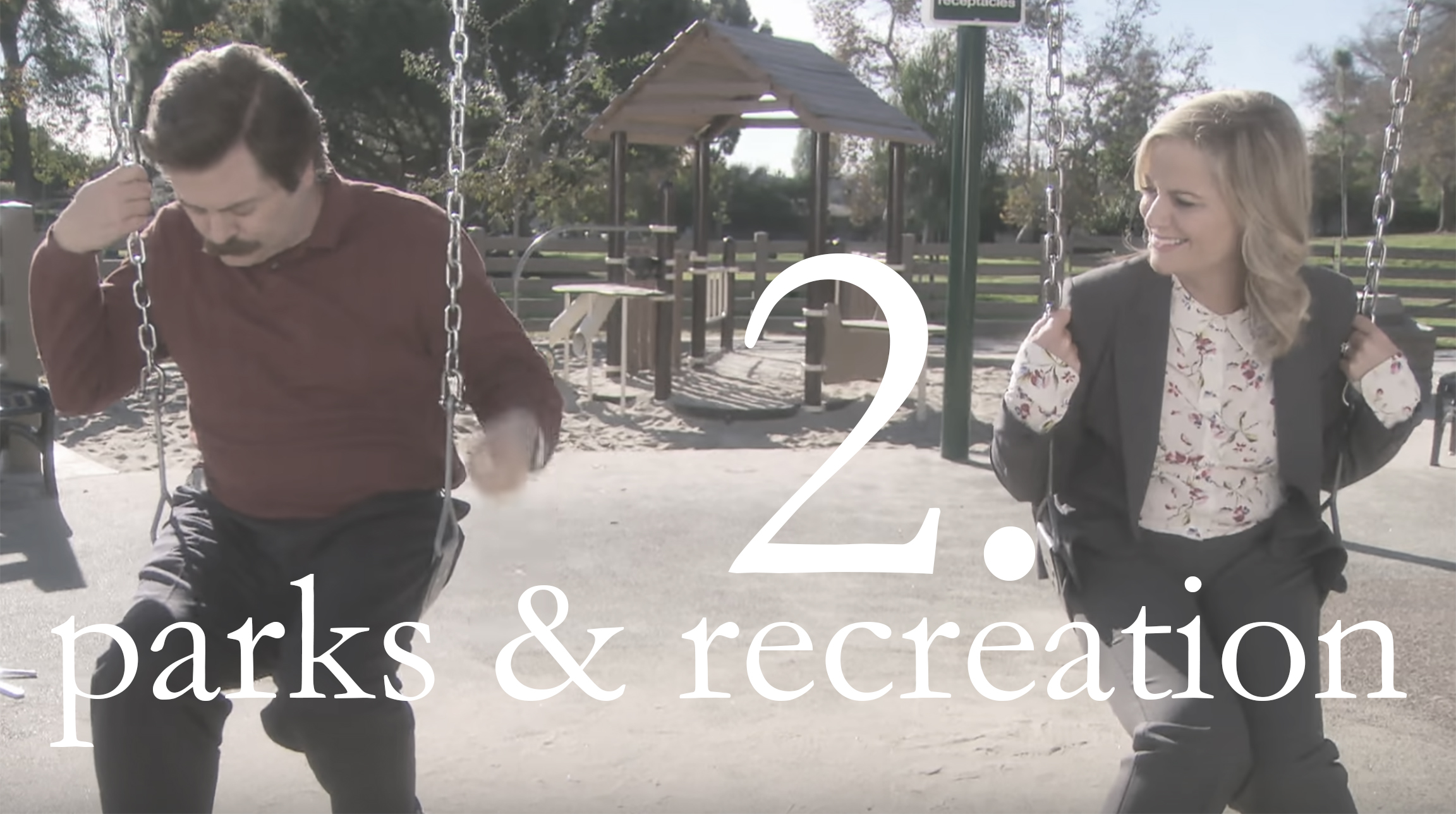
Like the only bar in your hometown on Thanksgiving break, the TV show “Parks and Recreation” welcomes in its viewers like old friends. The show centers around the Parks and Recreation department of Pawnee, Indiana and its lively faculty. Being a considerably overlooked section of local government in a town in the middle of nowhere, the staff is made up of a ragtag group oddballs, whose range of personality come together to make a comedic symphony. In the words of the show’s co-creator Michael Schur, in an interview with Vulture, “The best shows are always the ones that are very, very low-concept and just about great characters.”
The show echoes the success of its mockumentary predecessor, “The Office,” through applying the same documentarian style directing, and basing much of its humor off of the family-like conflicts and triumphs shared between characters. One way “Parks and Recreation” does set itself apart from the other character-focused Schur shows is the inclusion of an inspirational and strong female lead. Leslie Knope’s unshakeable persistence and dedication to her position makes viewers want to climb up on their seats and say “O captain, my captain!” With Leslie’s sunny disposition, in combination with the familial feeling provided by the supporting characters, “Parks and Recreation” leaves its viewers with warm feelings not often provided by comedy.
— Sofia Lynch
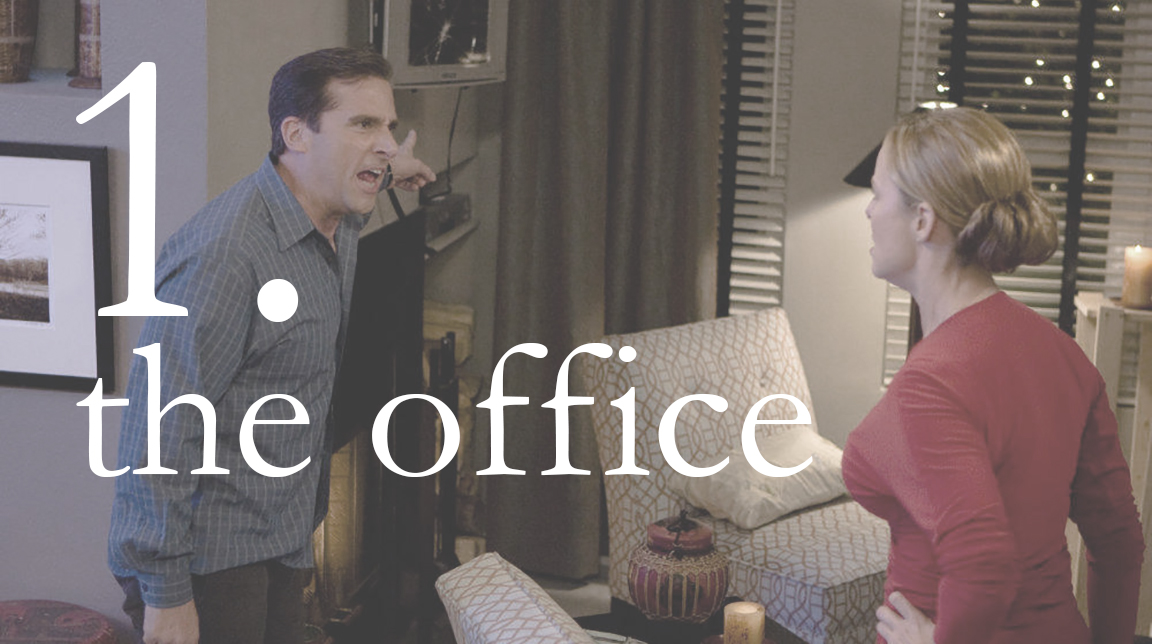
Dunder Mifflin: The People Person’s Paper People. When “The Office” first premiered in 2005, it was quick to nestle its way into the hearts of viewers. 12 years later, even after the production of the show ended, quotes from “The Office” remain part of our culture — through gifs, memes, or most recently, Post Malone lyrics. The world’s most mundane but universal setting gave the quippy writing a chance to stand on its own and reach a wide audience. The nature of the steady, rewarding character builds, in combination with the show’s colloquial humor, made it feel like a running inside joke, leading to its consistent presence throughout social media. Each one of the zany characters – no matter how infuriating they could be — reflected something that everyone saw (and possibly deplored) in themselves or others. All in all, the environment and character profiles the show presented were so incredibly true to life that viewers couldn’t help but relate. Combine that relatability with quick-witted, meme-worthy humor, and you’ve got the recipe for a timeless comedy.
— Sofia Lynch